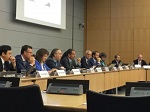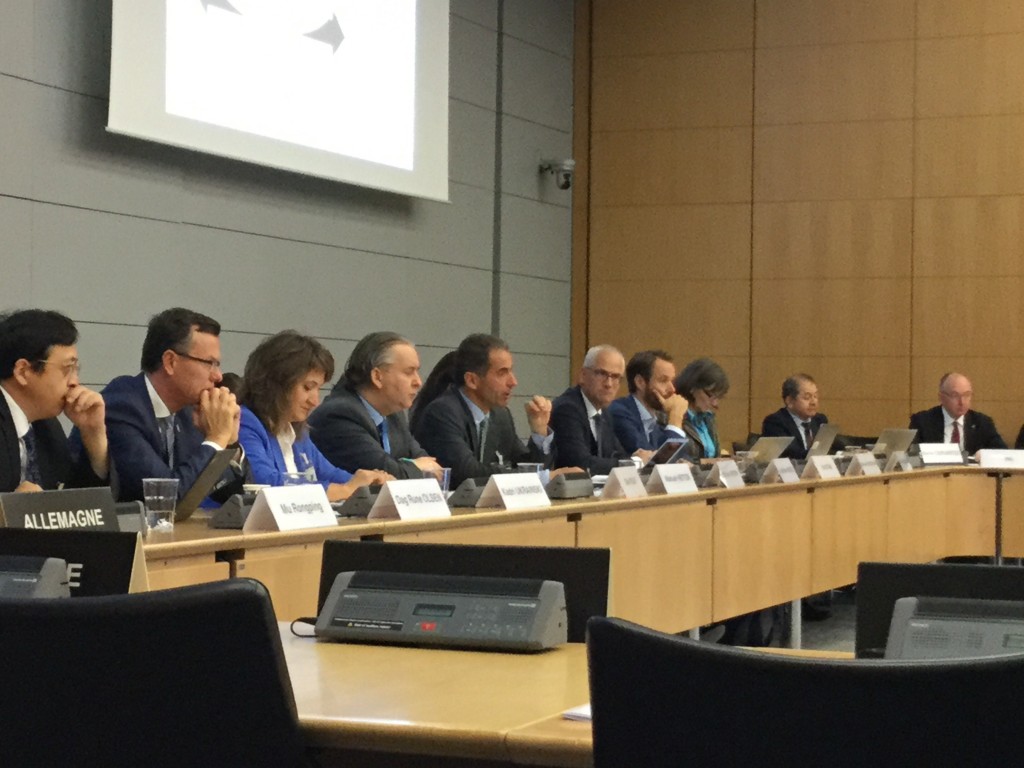The impact of Knowledge Triangle: Education, Innovation and Research & Technology

16th september, Paris, OCDE. The second day of discussions at OCDE on the Knowledge Triangle has been focused on the real life impact of the innovation process. Delegates from Norway, Austria, Portugal, Germany, Mexico or China… have explained their diverse experiences.
Real problems need to be tackle with real actions. For that reason, it is very important to analyze case-studies in order to learn how to improve the relation between university and society.
“Science requires massifying training for researchers, more scientific culture, an increase in the investments in R&D, and human capital to be transformed into productivity gains”, has argued Manuel Heitor, Minister for Science, Technology and Higher Education of Portugal. Heitor has defended also a system based on cities of knowledge and on human centered policies.

In a very practical based intervention, Dag Rune, Rector Professor for University of Bergen, has explained the Norwegian experience in the creation of knowledge clusters. “The idea is to build an space for creation where business and students work together, as a complementary activity”, has said.
“We need a human centered policy”, Manuel Heitor has said
From the Chinesse Academy of Sciences, Mu Rongping has shared the outcomes of the “wise teams” created at school by the government. “Our goal is to tackle institutional hurdles for innovation to transform this activity in the leading factor of development in China“, has commented.
“Universities can not be cathedrals in the desert, we need to combine the entrepreneurial ecosystem and the Knowledge Triangle, because the Knowledge Triangle will only be productive if its embedded in a dynamic entrepreneurial ecosystem”‘ has defended Erik Stam, from Utrecht University School of Economics.
“Our objective is to tackle hurdles for innovation”, Mu Ronping has explained
According to Barbara Sporn, from WU Vienna University of Economics and Business Austria, the strategy “has to change to make room to new incentives like: open access, role definition and ways to strengthening strengths”. For example, she has proposed a hard implementation of Spin-offs, innovation centers, business parks, clusters and networks. One of this spaces have been stablished at the Karlsruhe Institute of Technology. Joachim Knebel has commented some of the outcomes of a Live-Lab, as some product developments for agriculture and industry.
The debate has continued with proposals to measure the impact of Knowledge Tranfer activities. The Director of the Science Dissemination Unit of UNIR, Carlos Fernandez-Alameda, has explained some of the initiatives that the new Vice-chancellorship for Knowledge Transfer & Innovation is taking to follow the life-cycle of our international research projects.
Other Experiencies from Turkey, United Kingdom, Italie, Malaysia or Japan has been shared also in a very productive work session. All the working papers and reports are going to be available at the official page of OCDE.
UNIR Science Dissemination UNIT (UCC+i)
